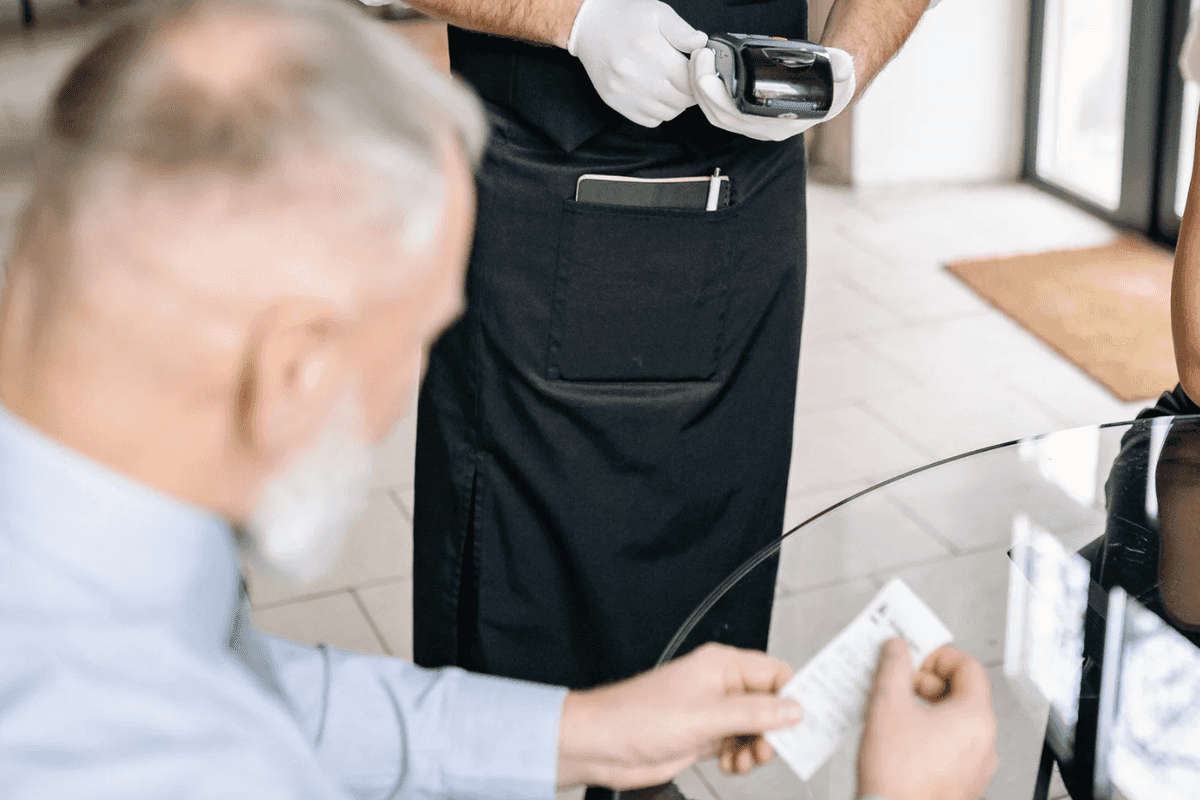This woman's powerful 'before and after' photos crush myths about body positivity
"Body positivity is about saying that you are more than a body and your self-worth is not reliant on your beauty."

Michelle Elman, a body positivity coach, helps people who are struggling to find confidence in their own skin. After persevering through numerous medical conditions and surgeries in her own life, Elman realized a few years ago that body positivity wasn't just about size or weight.
Things like scars, birthmarks, and anything else that makes us feel different of self-conscious have to be a part of the conversation, and she tries to make the movement accessible to everyone. Sharing her own journey has been one of her most effective teaching tools.
In May, she shared a post on Instagram of herself trying on a dress she bought five years ago in order to prove a powerful point.
In the first photo, from 2012 — when she was a size 12, she says — she's wearing a size 14 dress. In the new photo, she's wearing the same dress, though she says she normally wears a size 20.
The dress still fit.
"NUMBERS DON'T MEAN ANYTHING," she wrote in the post. "So are you really going to let a change [in] dress size dictate your day? Are you really going to let an increase in a number affect your mood?"
"A higher dress size doesn't mean: — you are less beautiful — you are less worthy — you are less lovable — you are a worse human — you are a bad person — you are a different person AND it doesn't even mean you have a bigger body."
The viral photo inspired thousands of people. While a huge majority of the comments were positive, there was still something bugging Elman about the response.
Not everyone was getting the right message.
"Since the creation of this account, I have always been told I'm beautiful 'for my size' and I never wanted to talk about it because I thought I was being pedantic but eventually decided to speak my mind about it," she says in an email.
She decided to create a follow-up post to set a few things straight about what body positivity really means.
In the second post, she took a different approach to the "before and after" shots we see so often on Instagram. People loved it.
In the caption, Elman addresses a couple of things well-meaning people got wrong about the message she was trying to spread. Some commenters said she looked "skinnier" in the 2017 photo which, though meant as a compliment, just reinforces that being skinny is somehow better.
Others said she wasn't fat enough, to which Elman could only scoff.
"If people tell you they are a certain size, believe them," she wrote.
"People think that body positivity is about trying to convince people that bigger bodies are attractive, either physically or sexually," she says.
But that's totally missing the point of what her work is all about.
"If you are still relating your love for your body to society's perception of beauty," she says, "then you are still reliant on someone else's opinion. Body positivity is about saying that you are more than a body and your self-worth is not reliant on your beauty."
Her second post is currently sitting at over 26,500 likes on Instagram — a clear sign that this is a message many of us desperately needed to hear.
This article originally appeared seven years ago.
- Owner of a fitness company posts about self-love. - Upworthy ›
- Body positivity TikTokker shows why it's hard for obese people to travel - Upworthy ›
- Incredible NASA before-and-after photos - Upworthy ›
- Nicola Coughlan responds to being called brave at interview - Upworthy ›
- Couples share their most shocking celebrity hall passes - Upworthy ›
- Plus size figure skater with unreal moves is inspiring girls everywhere - Upworthy ›



 A man saying "be quiet."via
A man saying "be quiet."via  A woman zipping up her mouth.via
A woman zipping up her mouth.via 

 Many people make bucket lists of things they want in life.
Many people make bucket lists of things they want in life. 
 People practicing on the driving range. via
People practicing on the driving range. via  A group of people playing golf. via
A group of people playing golf. via 